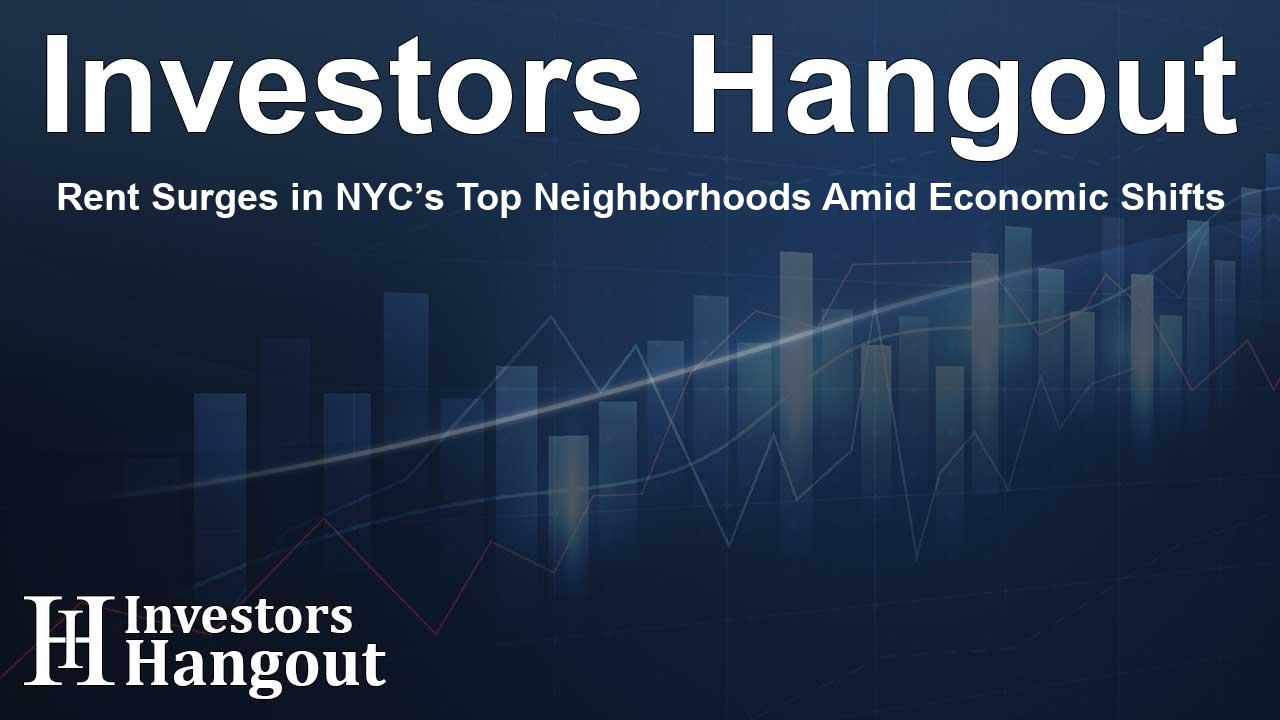Rent Surges in NYC’s Top Neighborhoods Amid Economic Shifts

Significant Rent Increases in NYC's Wealthiest Areas
In the aftermath of the COVID-19 pandemic, house rental rates in New York City's affluent neighborhoods have skyrocketed, with increases surpassing 60%. This sharp rise has posed challenges even for those with substantial incomes.
Impact on Notable Neighborhoods
Popular areas such as Tribeca and SoHo have seen the steepest hikes, with median rents in Tribeca now hovering around $8,000 monthly. This dramatic shift from 2020 to 2025 reflects the ongoing housing challenges many face as competition drives prices up.
Crossing Rent Thresholds
Other vibrant neighborhoods like Greenpoint and Williamsburg are witnessing rents exceeding $5,000, while Long Island City recently crossed the $4,500 mark. Notably, Chelsea and Dumbo also recorded increases of over 50%, adding to the citywide average rent surge of 27% since the onset of the pandemic.
Economic Pressures on Renters
High-income renters, including finance and arts professionals, are now contending with bidding wars that were once typical only for homebuyers. This intensified competition reflects a shifting rental landscape where affordability has greatly diminished for many households.
Spending Strain
Reports indicate that approximately 65,000 households earning between $100,000 and $300,000 are now allocating a third or more of their income to housing costs. This marks a notable increase in financial strain compared to previous years, emphasizing the growing challenges within the rental market.
Drivers Behind the Rent Surge
The escalation in rental prices is largely attributed to landlords attempting to recuperate from losses sustained during the pandemic, coupled with high interest rates that are discouraging potential homebuyers. Moreover, an influx of luxury developments is intensifying rental competition.
New Developments Adding to Costs
In Long Island City, nearly 7,200 new apartments have been introduced since 2020, primarily in high-rise constructions. The average rent in these new developments tends to be about $625 higher than the typical apartments in the area, contributing further to rising living costs.
The Road Ahead for Renters
As New York City navigates these significant challenges, it remains to be seen how the rental market will evolve. Professional renters must adapt to an ever-changing landscape while balancing budget constraints in a city known for its dynamic lifestyle and economic opportunities.
Frequently Asked Questions
What neighborhoods in NYC are most affected by rent increases?
Areas such as Tribeca, SoHo, Greenpoint, and Williamsburg have experienced the largest rent hikes, significantly impacting renters.
How much has rent increased citywide?
Citywide rents have surged by an average of 27% from 2020 to 2024, with some neighborhoods seeing a 60% rise.
Who is most impacted by these rent increases?
High-income earners in finance and the arts sectors are facing intense competition and increased financial strain due to rising rents.
What factors are driving the surge in rents?
The main factors include landlords recovering losses from the pandemic, high interest rates keeping buyers out of the market, and new luxury developments.
What should renters expect in the future?
The rental market may continue to face upward pressure on rent prices, requiring renters to adapt to changing financial demands.
About The Author
Contact Olivia Taylor privately here. Or send an email with ATTN: Olivia Taylor as the subject to contact@investorshangout.com.
About Investors Hangout
Investors Hangout is a leading online stock forum for financial discussion and learning, offering a wide range of free tools and resources. It draws in traders of all levels, who exchange market knowledge, investigate trading tactics, and keep an eye on industry developments in real time. Featuring financial articles, stock message boards, quotes, charts, company profiles, and live news updates. Through cooperative learning and a wealth of informational resources, it helps users from novices creating their first portfolios to experts honing their techniques. Join Investors Hangout today: https://investorshangout.com/
The content of this article is based on factual, publicly available information and does not represent legal, financial, or investment advice. Investors Hangout does not offer financial advice, and the author is not a licensed financial advisor. Consult a qualified advisor before making any financial or investment decisions based on this article. This article should not be considered advice to purchase, sell, or hold any securities or other investments. If any of the material provided here is inaccurate, please contact us for corrections.
